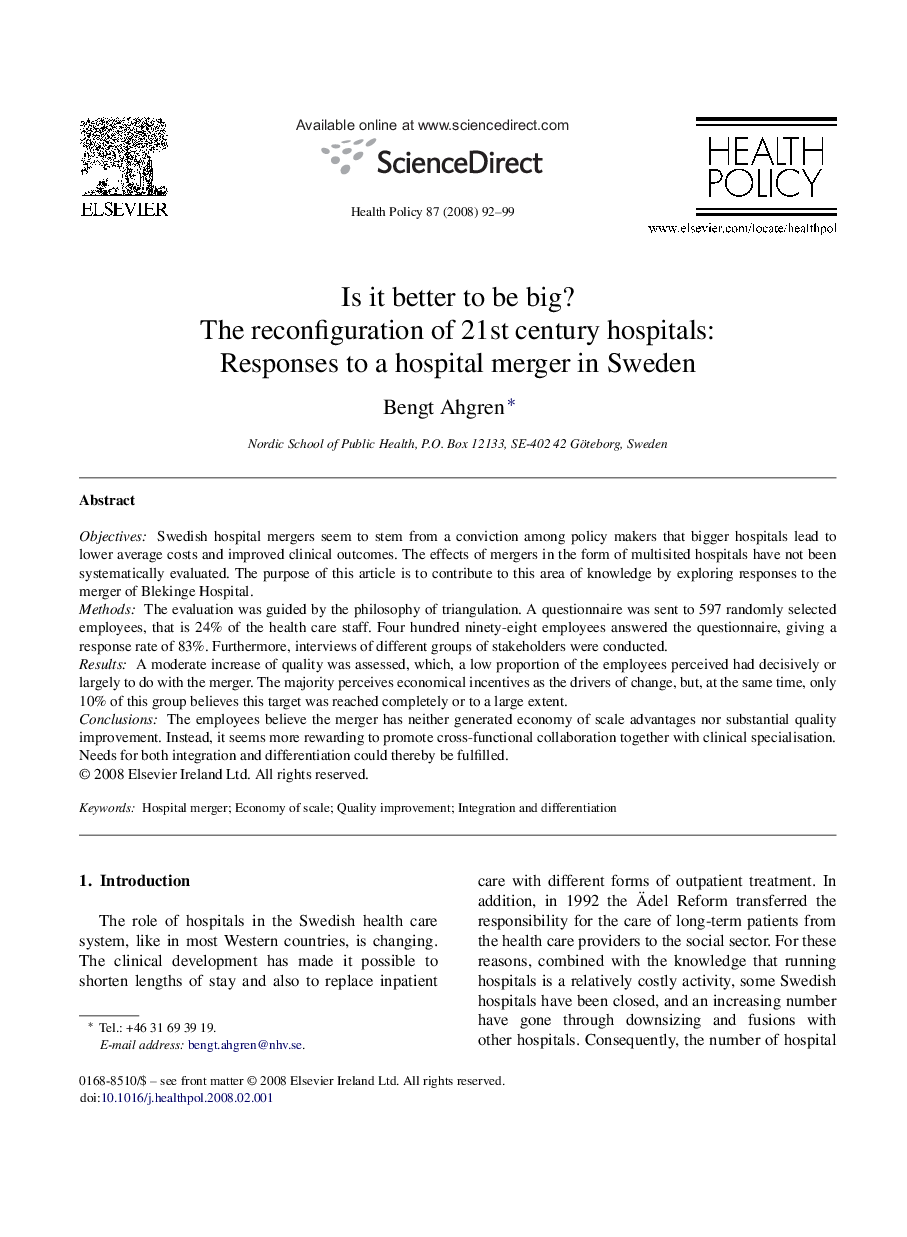| Article ID | Journal | Published Year | Pages | File Type |
|---|---|---|---|---|
| 4198701 | Health Policy | 2008 | 8 Pages |
ObjectivesSwedish hospital mergers seem to stem from a conviction among policy makers that bigger hospitals lead to lower average costs and improved clinical outcomes. The effects of mergers in the form of multisited hospitals have not been systematically evaluated. The purpose of this article is to contribute to this area of knowledge by exploring responses to the merger of Blekinge Hospital.MethodsThe evaluation was guided by the philosophy of triangulation. A questionnaire was sent to 597 randomly selected employees, that is 24% of the health care staff. Four hundred ninety-eight employees answered the questionnaire, giving a response rate of 83%. Furthermore, interviews of different groups of stakeholders were conducted.ResultsA moderate increase of quality was assessed, which, a low proportion of the employees perceived had decisively or largely to do with the merger. The majority perceives economical incentives as the drivers of change, but, at the same time, only 10% of this group believes this target was reached completely or to a large extent.ConclusionsThe employees believe the merger has neither generated economy of scale advantages nor substantial quality improvement. Instead, it seems more rewarding to promote cross-functional collaboration together with clinical specialisation. Needs for both integration and differentiation could thereby be fulfilled.
